
Do you get the feeling that there are more twins around these days than there used to be? No? Well, you should, because according to a new study in the journal Human Reproduction, the “twinning rate” has increased by one-third since the ’80s—up from 9 to 12 twins per 1,000 deliveries. Currently, that adds up to about 1.6 million twins born each year across the world—meaning one out of every 42 babies is a twin. Helping drive this is the increasing use of medically assisted reproduction, and the delay in childbearing (twinning has been found to increase with a mother’s age). For more pieces of trivia to impress your friends, here are 50 Facts So Strange You Won’t Believe They’re True.
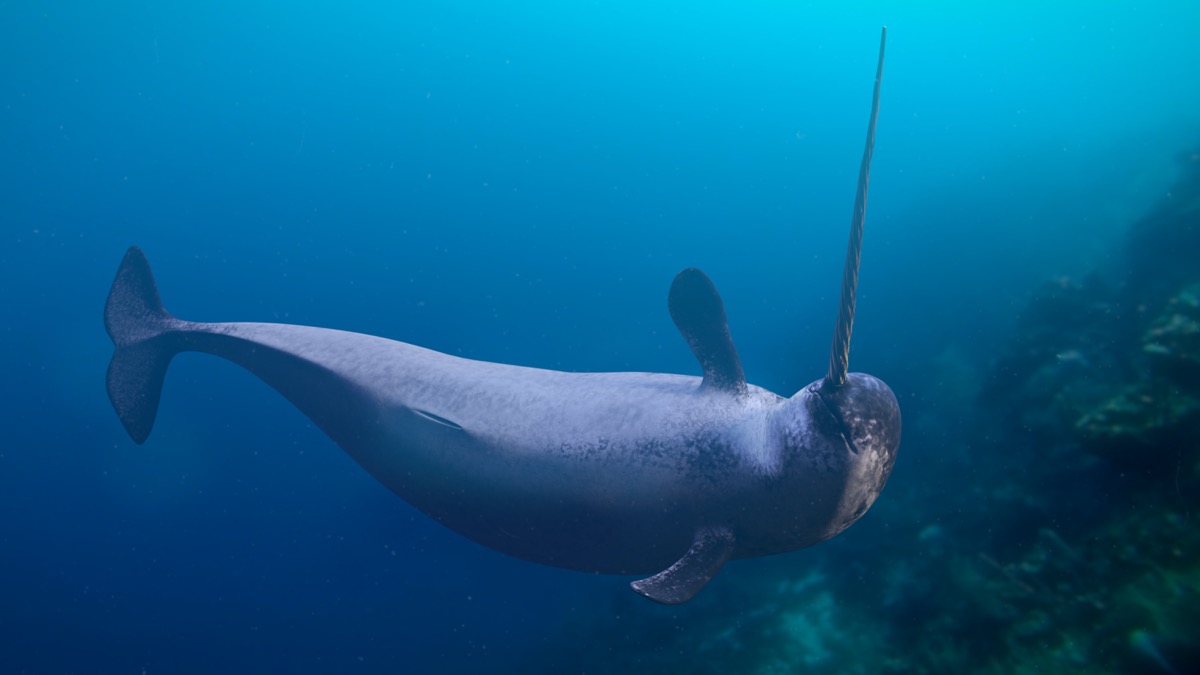
Much like the rings of a tree can tell you its age and provide clues about the life it has lived, so too does the long tusk of the narwhal. Recent research led by a bioscience professor at Denmark’s Aarhus University has shown that this peculiar arctic whale adds a layer to its distinctive tusk each year. And not only do these layers offer insight into the age of the narwhal (they’ve been known to live up to 50 years) but the conditions in which they lived—such as level of pollution, temperature levels, and even what their diet consisted of. You are what you eat!
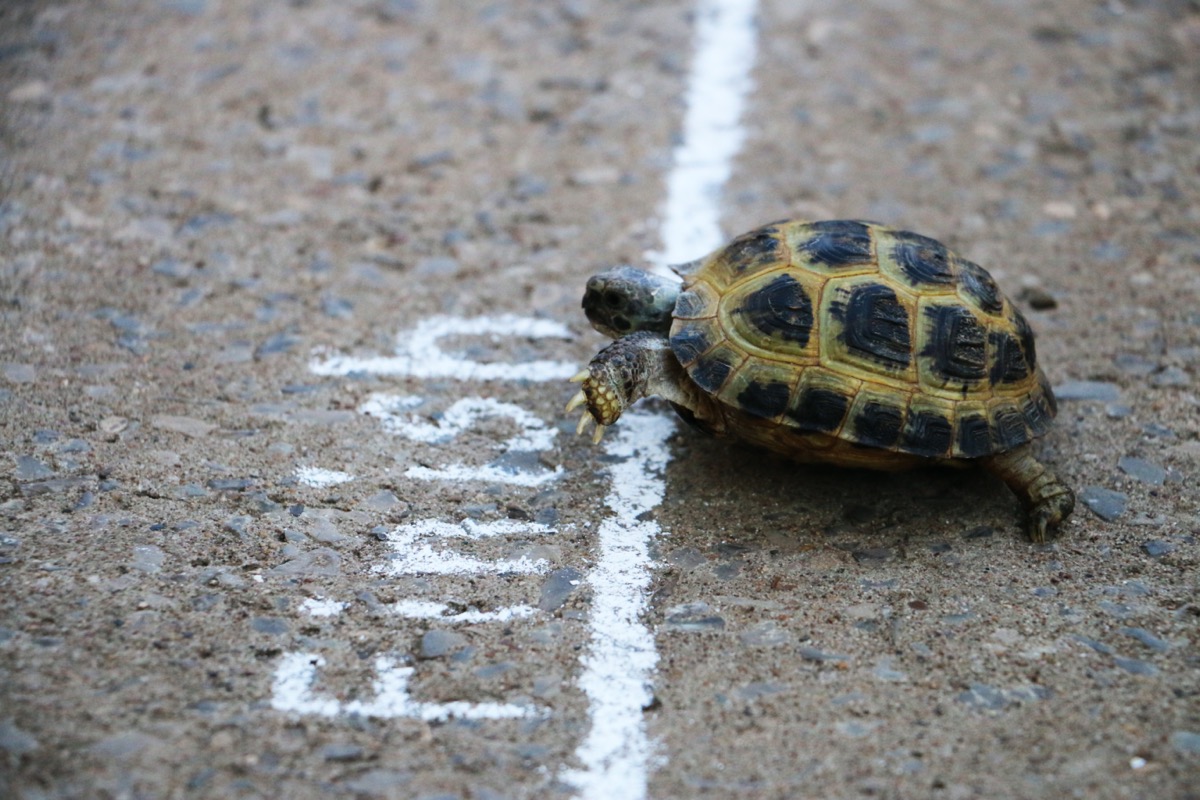
According to Guinness World Records, the first person to be charged with speeding was Walter Arnold of the English village of Paddock Wood, Kent. On Jan. 28, 1896, Arnold was spotted going four times the speed limit in his 19th-century Benz—but since the speed limit at the time was just two miles per hour, that meant he was not going too fast by today’s standards. The constable had to chase him down on his bicycle, issuing a ticket for £4 7s and earning Arnold the speedy distinction. For more trivia to impress, here are 40 Random Obscure Facts That Will Make Everyone Think You’re a Genius.

Few odors are as pleasing as “new car smell”—and not just because it’s nice to be in a brand new car. But while the scent may be strangely satisfying, the fact is that it’s pretty much just a combination of 50+ chemicals (known as “volatile organic compounds”) that are released into the car, decaying quickly over time. The concentrations found in a typical new car aren’t dangerous, but among the VOCs that make up much of that new car smell are those found in nail polish, auto fuel, and petroleum.

Food waste is a huge problem. How big? About 931 million metric tons. That’s how much food that researchers with the United Nations estimate was wasted in 2019, according to the Food Waste Index Report 2021, which surveyed 54 countries, finding that the majority of wasted food (61%) comes from homes while restaurants and other food services produce 26% of wasted food. Grocery stores make up just 13% of food waste. If you need a pick-me-up, read through these 50 Feel-Good Facts Guaranteed to Make You Smile.
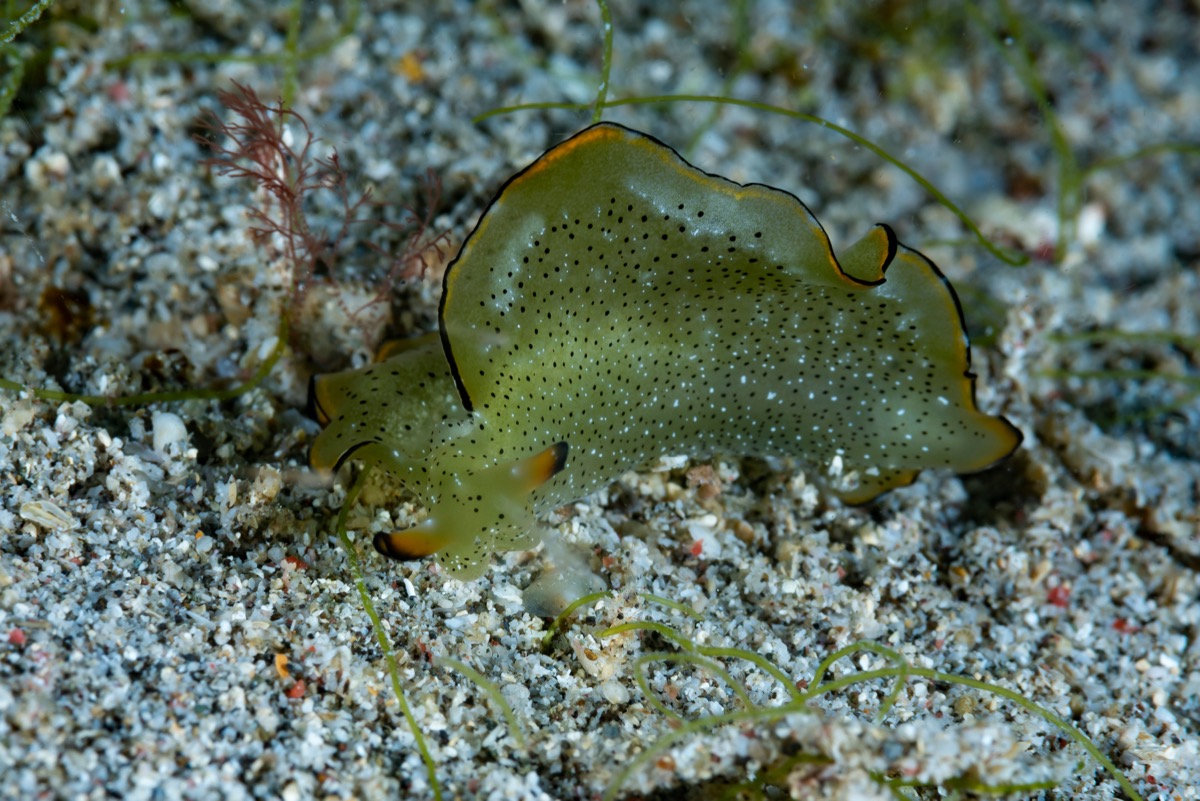
It sounds like something out of a horror film, but it’s all too real: The Elysia cf. marginata, a type of sea slug, has been found to not only survive decapitation, but to be able to grow a whole new body from it. Ecologists at Nara Women’s University in Japan found that, a few hours after having their heads severed from their bodies, the snails’ heads were already nibbling on algae as if nothing had happened. In about 20 days, one-third of the sea slugs studied had fully grown back their bodies—heart included.

A surprising side effect of pregnancy is that nails and hair grow faster than usual. This is due to changes in hormones as well as increased blood circulation and metabolism supplying nutrients. According to Amy O’Connor, writing for What to Expect, a pregnant person’s hair also “might feel thicker and look more shiny and healthy than usual.” Though she warns that it can occasionally mean that the expecting “may suddenly sprout strands in places [they’d] rather not.” If you want to question everything you know, check out 50 Well-Known “Facts” That Are Actually Just Common Myths.
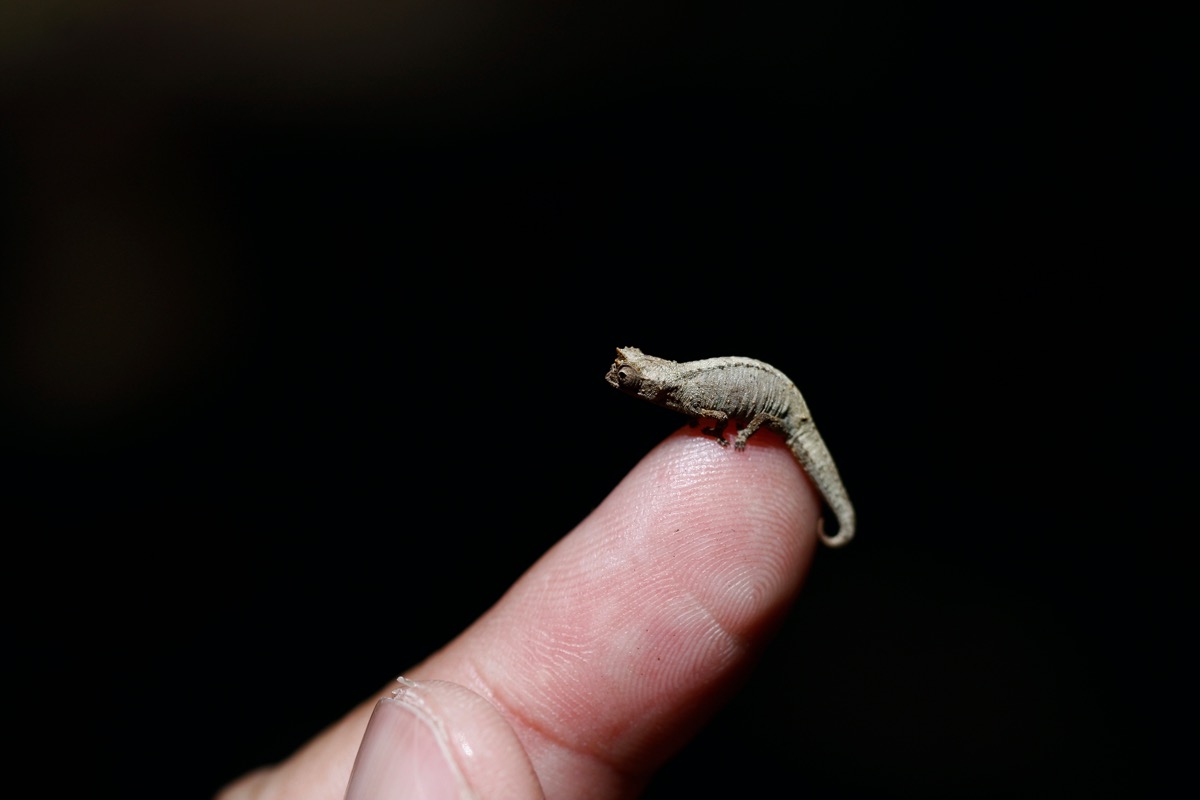
Those who think everything on the planet has already been discovered might just not be looking close enough. A tiny chad measuring just 28.9 millimeters is believed to be the smallest reptile on Earth. The itty bitty chameleon was recently discovered and reported in the January 2021 issue of Scientific Reports. But there’s one thing about these critters that’s big for its size: The genitalia of the males measures almost 20% of their body length.

Feet are enormously complex parts of the body. Each foot contains 26 bones, as well as 33 joints and 19 muscles, which work together to allow for a huge range of motion and movements. But many of these bones remain cartilage throughout a person’s childhood, slowly ossifying into bone as the years go on. According to the Ontario Society of Chiropodists, all of the bones in the foot don’t completely harden until a person is about 21 years old! And for more trivia to keep you sharp, sign up for our daily newsletter.
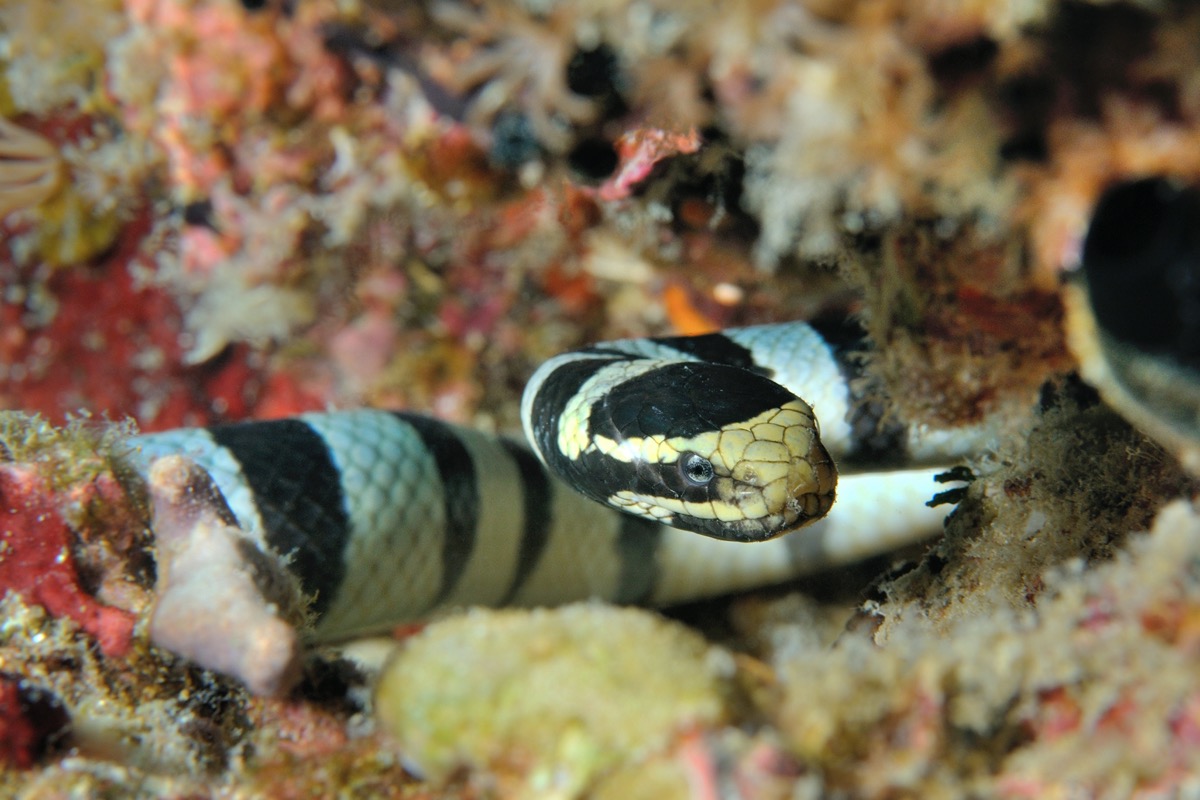
You might think that it’s just fish that have gills, but there are several species of sea snakes that breathe through their skin as well. For example, the Hydrophis cyanocinctus has been found to breathe through the top of its own head. It has a small hole and collection of blood vessels at the top of its head for picking up oxygen from the seawater and sending it to the reptile’s brain while it moves underwater.

The iconic stone heads protruding from the ground on Easter Island are familiar to most, but many don’t realize what lies beneath the surface. In the ’10s, archaeologists studying the hundreds of stone statues on the Pacific Island excavated two of the figures, revealing full torsos, which measure as high as 33 feet.

Just as earth has earthquakes, the moon has—you guessed it—moonquakes. Less common and less intense than the shakes that happen here, moonquakes are believed by U.S. Geological Survey (USGS) scientists to occur due to tidal stresses connected to the distance between the Earth and the moon.
 Why do we get goosebumps? In this physiological reaction, small muscles attached to individual body hairs contract, which leads the hair to stand on end. We inherited this ability from our ancestors in part as a way for our (then) coat of body hair to capture air beneath it and in that way retain heat. But, as George A. Bubenik, a physiologist and professor of zoology at the University of Guelph in Ontario, Canada, explained to Scientific American, it also caused our ancestors to appear bigger than they were, helping to ward off predators when they were frightened or on the defense. With modern humans having less body hair, goosebumps no longer cause us to look that much more intimidating.
Why do we get goosebumps? In this physiological reaction, small muscles attached to individual body hairs contract, which leads the hair to stand on end. We inherited this ability from our ancestors in part as a way for our (then) coat of body hair to capture air beneath it and in that way retain heat. But, as George A. Bubenik, a physiologist and professor of zoology at the University of Guelph in Ontario, Canada, explained to Scientific American, it also caused our ancestors to appear bigger than they were, helping to ward off predators when they were frightened or on the defense. With modern humans having less body hair, goosebumps no longer cause us to look that much more intimidating.
“Wait,” you’re probably thinking, “I had pear cider last week.” Actually, “cider” is an alcoholic beverage made from fermented apples, and only apples. Alcoholic beverages can be made from pears, but that drink is known as “perry.” The drink was popular in England for centuries but fell out of favor during the second half of the twentieth century. That turned around in the 1990s when the drink was rebranded as pear cider.

The fruit is packed with the enzyme bromelain, which breaks down protein chains, making it an ideal marinade for meats when you don’t have a lot of time. But for the same reason, pineapple does not work for jams or jellies, since the enzyme breaks down gelatin as well. The bromelain is so strong that pineapple processors have to wear protective gloves, otherwise over time the enzyme eats away at the skin on their face and hands, leaving dry skin and small sores.

We are also believed to be the only animal that feels embarrassment—a complicated emotion requiring understanding others’ opinions and other factors. Charles Darwin called blushing “the most peculiar and most human of all expressions,” while Mark Twain said, “Man is the only animal that blushes. Or needs to.”

We’ve all heard how casinos are designed to deliberately disorient visitors, causing them to lose track of time and where exactly they are. But did you know that there’s a similar strategy behind the design of shopping malls as well? Officially known as the “Gruen transfer,” this phenomenon was named after Austrian architect Victor Gruen, who identified how an intentionally confusing layout could lead to consumers spending more time and money in a shopping venue (though he would later disavow the approach).

Talk about having to go! Wood frogs in Alaska have been known to hold their urine for up to eight months, sticking it out through the region’s long winters before relieving themselves once temperatures increase. The urine actually helps keep the animal alive while it hibernates, with special microbes in its gut that recycle the urea (urine’s main waste) into nitrogen.

Specifically, the hottest spot ever recorded on Earth is El Azizia, in Libya, where a temperature of 136 degrees Fahrenheit was recorded on Sept. 13, 1922. While hotter spots have likely occurred in other parts of the planet at other times, this is the most scorching temperature ever formally recorded by a weather station. For more info that will wrinkle your brain, here are 50 Absurd Facts That Will Make You Question Everything.

This might explain why airplane food gets such a bad reputation. The elevation in an airplane can have a detrimental effect on our ability to taste things. According to a 2010 study conducted by Germany’s Fraunhofer Institute for Building Physics, the dryness experienced at a high elevation as well as low pressure reduces the sensitivity of a person’s taste buds to sweet and salty foods by about 30 percent. Add that dry cabin air affects our ability to smell, and our ability to taste is reduced further.

When we breathe in and out of our nose during the day, one nostril does most of the work at a time, with the duties switching every several hours. This “nasal cycle” is dictated by the same autonomic nervous system that regulates heart rate, digestion, and other unconscious bodily functions and is the reason why—when our nose gets stuffed up—it does so one nostril at a time.
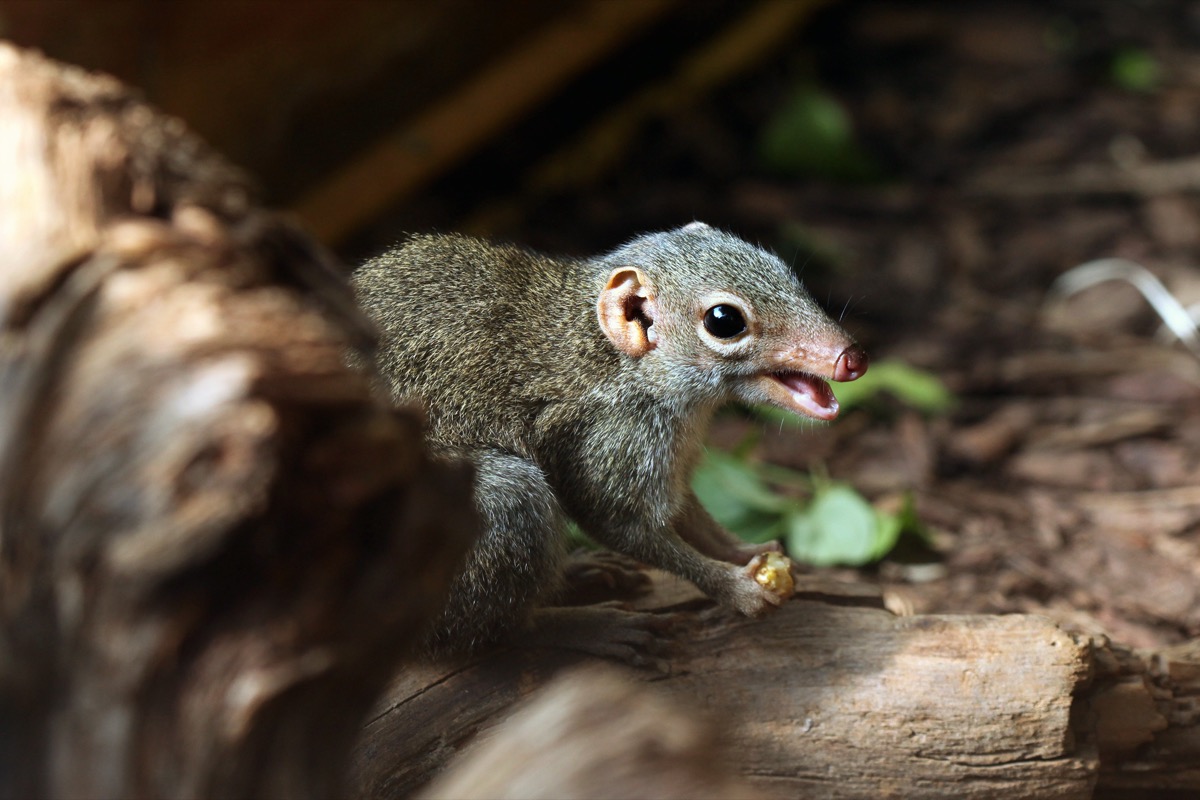
While humans have long had the rare distinction of being the only mammal that actually enjoys spicy food, that list has seen a new addition, as a study by Chinese researchers found that tree shrews have a mutation in their ion channel receptor, TRPV1, which makes it less sensitive to the “hot” chemical in chili peppers. As a result, the adorable critters happily gobbled up corn pellets laced with capsaicin (the compounds that give peppers their spice) while other mammals in the study avoided them.

Most diners are too busy looking at their food to look all that closely at what the preparer is wearing, but the toque—the traditional hat worn by chefs—actually contains exactly 100 folds. This is not just a nice, round number: it is said that these folds represent the number of ways to cook an egg, though an investigation by Bon Appetit failed to track down where that saying originated. Need more distractions? Here are 35 Fascinating Fast Facts for When You’re Bored.

Unlike cats or other animals that can cough up hairballs when they digest too much fur and other indigestible materials, rabbits are incapable of spewing. Their digestive system only goes one way, so the furry critters swallow plenty of roughage, which keeps things moving in the right direction.

That would be Forrest Mars and Bruce Murrie, the two businessmen who created the candy-coated chocolates. The two actually had a very contentious relationship, as Mars leveraged Murrie out of his 20 percent share in the company in 1949—years before M&Ms would become the best-selling candy in the U.S., paying him just $1 million for a share of business that would quickly be worth billions.

It might be hard to see with your naked eye, but everyone you pass by every day is literally glowing. The human body emits a small quantity of visible light (“visible” in the technical sense—the illumination is about 1,000 times less intense than levels of light that we would actually be able to see). Researchers in Japan used a special camera to track this glow and found that it fluctuates throughout the day, with the body emitting its lowest levels of light around 10 a.m. and highest at around 4 p.m., a rhythm the scientists attribute to the changes in one’s metabolism.

Copper and its alloys, such as brass, have long been popular materials for manufacturing door knobs. It turns out, this may not just because the metal’s hue makes it look nice. In fact, the material has been found to kill bacteria. According to one study from the National College of Kathmandu in Nepal, “the metal ions denature protein of the target cells by binding to reactive groups resulting in their precipitation and inactivation. The high affinity of cellular proteins for the metallic ions results in the death of the cells due to cumulative effects of the ion within the cells.” In other words, brass sterilizes the bacteria that can build up from all those (potentially unwashed) hands that grip it.

It is not known whether William Morrison had an ulterior motive for inventing the soft confection, but the dentist no doubt helped ensure others in his profession continued drawing in plenty of customers. In 1897, he partnered with candy-maker John C. Wharton to develop the cotton candy machine (which at the time was known as “Fairy Floss”), and it’s been bringing kids cavities ever since.
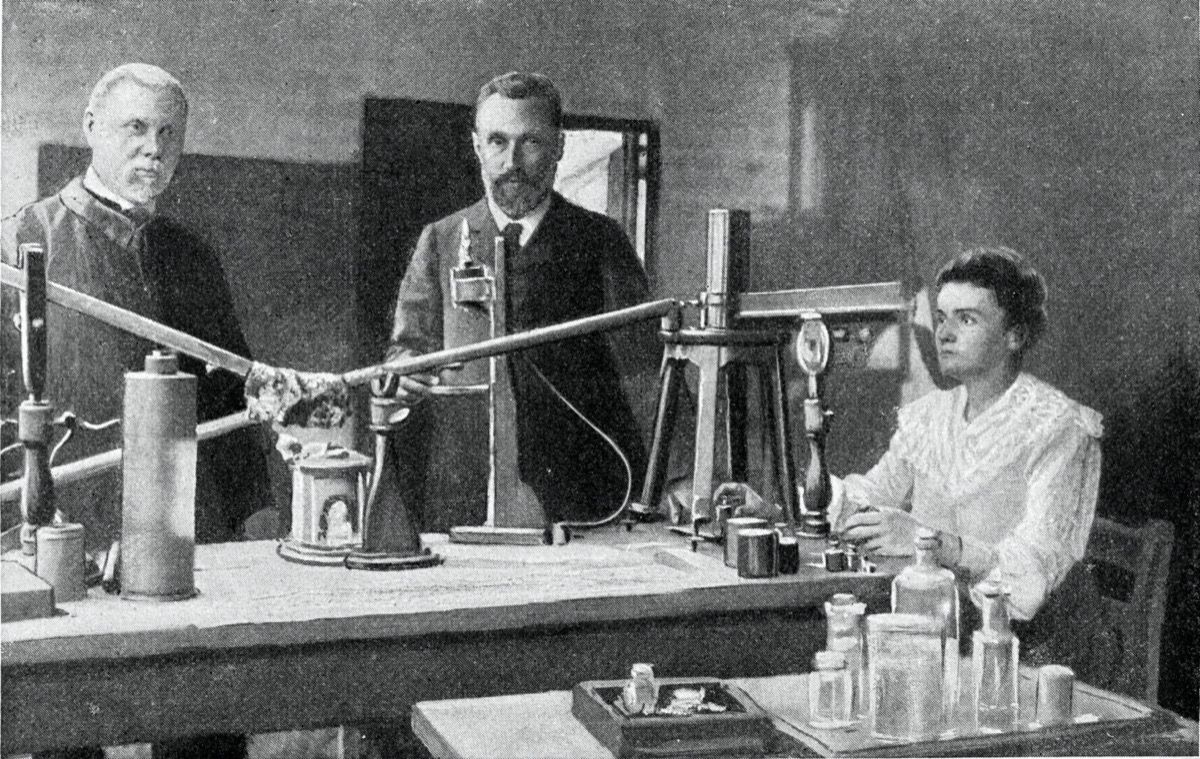
The pioneering researcher won the Nobel Prize in Physics in 1903 (shared with her husband) for her study of spontaneous radiation, and then won the Nobel Prize in Chemistry in 1911 for her work in radioactivity. That makes her one of just six recipients to receive multiple Nobel prizes, and the only person to receive it in two different sciences. (Chemical engineer Linus Paulding earned a Nobel Chemistry Prize and Nobel Peace Prize, but all other multiple winners received theirs in the same category).


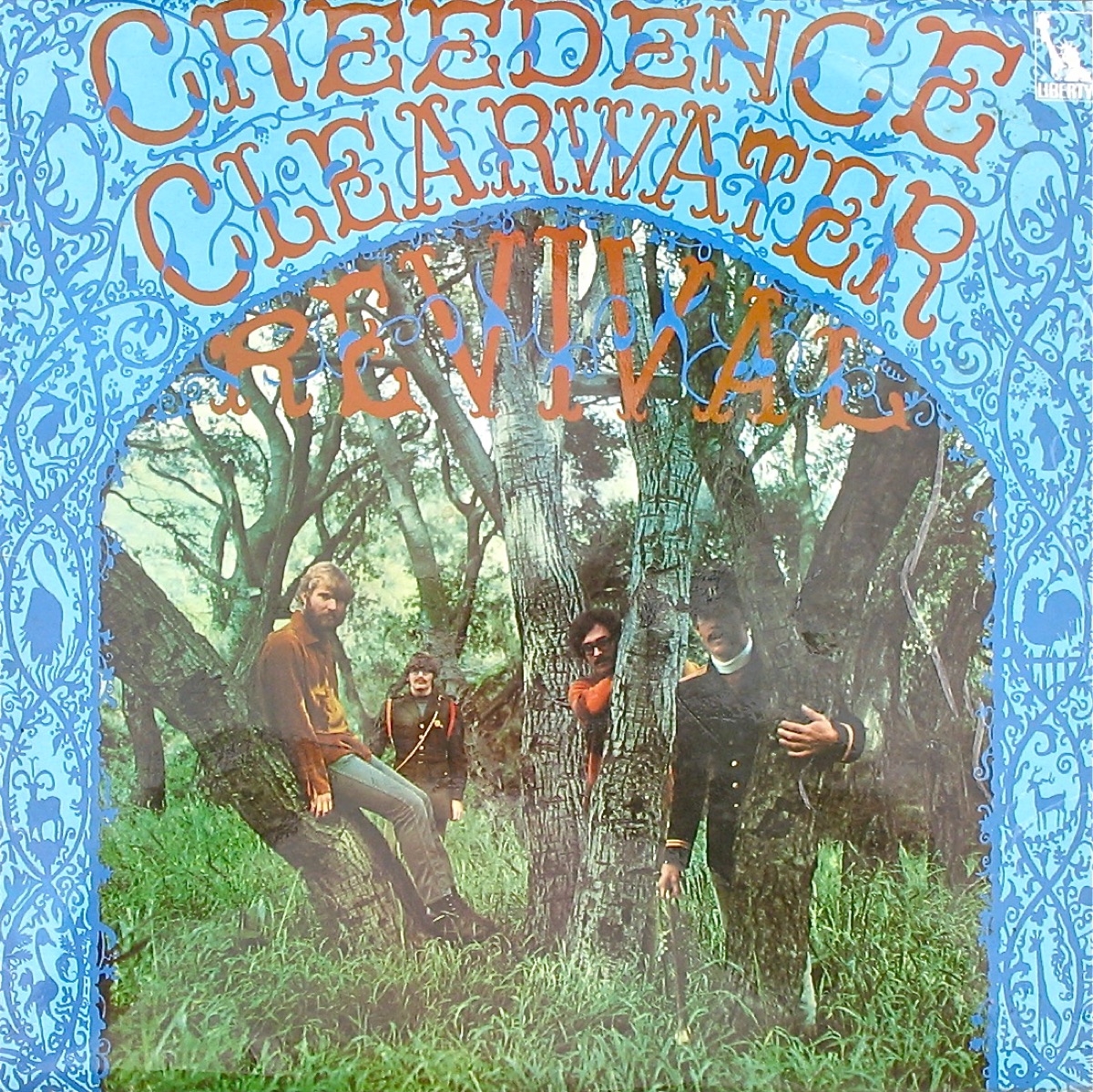
John Fogerty‘s swamp rock band has the odd distinction of having seen more of its singles hit No. 2 on the charts, without ever hitting No. 1, than any other musical act. Between March 1969 and Oct. 1970, the band scored five No. 2 singles on the Billboard Top 100—”Proud Mary,” “Bad Moon Rising,” “Green River,” “Travelin’ Band,” and “Lookin’ Out My Back Door”—but never saw one of its songs get to the top spot. No other act has topped this dubious honor since.

In a 1995 study published in the Journal of Experimental Analysis of Behavior, researchers reported being able to train pigeons to discriminate between paintings by Claude Monet and Pablo Picasso when shown slides of their works that they had previously never seen before. When the Picasso images were inverted, the little art connoisseurs could still tell it was a Picasso. Maybe that’s why they like landing on statues so much.

That tiny dot above lower case “I” and “j” letters has an actual name: tittle. It is thought that the phrase “to a T” is actually derived from the phrase “to a tittle”—a phrase that was used in the same sense dating back to the early 17th century. (The first recording of the phrase is in the 1607 play Woman Hater by Francis Beaumont and John Fletcher, in which the line reads, “I’ll quote him to a tittle.”)
Next time you are having trouble focusing, you might want to reach for a stick of gum. A 2013 study in the British Journal of Psychology found that those subjects who chewed gum while taking part in a memory challenge were able to stay focused for longer periods of time than those who did not chew gum.
The original comic book Superman could leap tall buildings in a single bound. But then he had to come right back down to Earth—because he didn’t fly. It wasn’t until the 1940s, when animators for a new animated series decided it would be too difficult to routinely draw him bending his knees, that it was decided that Superman could take off into the air. Readers got to see smooth animation, and a superhero gained a new power.
These days, supercomputers are everywhere—and they really don’t need much space at all. Have an Xbox One posted up in your living room? That’s a supercomputer. A laptop-tablet hybrid in your bag? That’s a supercomputer, too. (Don’t even get us started on the thing in your pocket…) But when supercomputers first came around, they needed much, much more space. Just take a look at the world’s first one: The Electronic Numerical Integrator and Computer (ENIAC).
Originally built at the University of Pennsylvania’s School of Engineering, in 1946, ENIAC weighed 60,000 pounds and took up a room larger than most studio apartments (1,500 square feet). Shortly after construction, ENIAC was sent off to the military, where it was used to calculate ballistic trajectories (translation: launch missiles) with frightening accuracy. Today, computer experts at Penn credit ENIAC with heralding in the “dawn of the information age.”
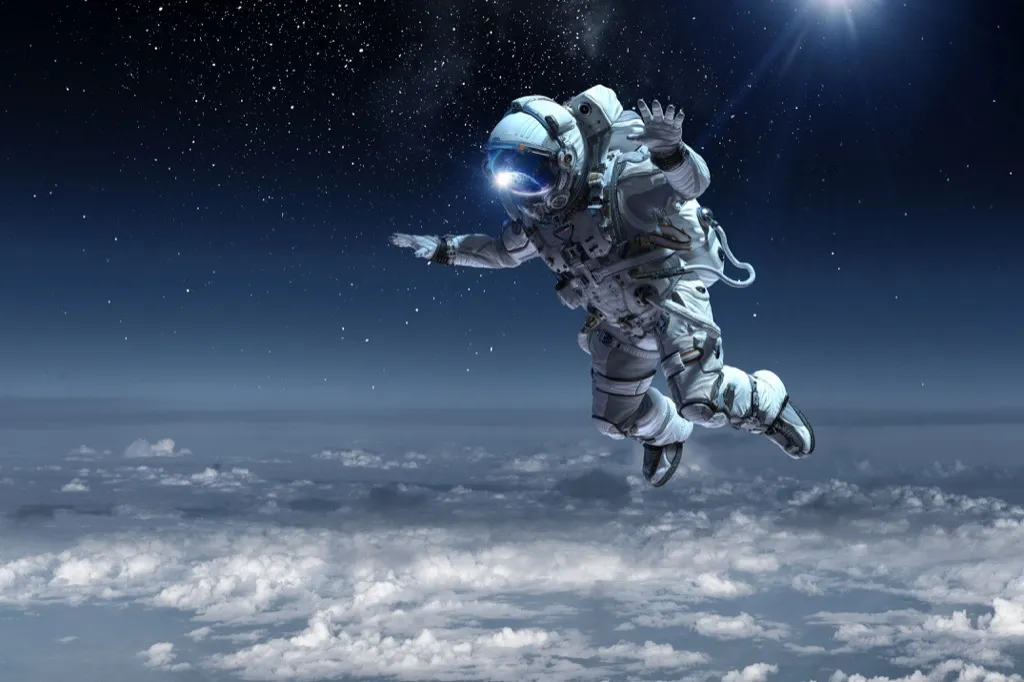
When you see footage of astronauts floating peacefully in space, do you ever wonder, What do space smells like? Well, according to some former astronauts, space does have a distinct odor that hangs around post-spacewalk. They’ve described it as “hot metal” or “searing steak.”

When Maria Paraskeva, a woman from Cyprus, got married in August 2018, her goal wasn’t just to say “I do.” She was also determined to set a record.
“My dream as a child has always been to break the Guinness World Record title for the longest wedding veil,” she explained. She fulfilled her dream by wearing a lace veil that stretched 22,843 feet and 2.11 inches, or as long as 63.5 football fields.
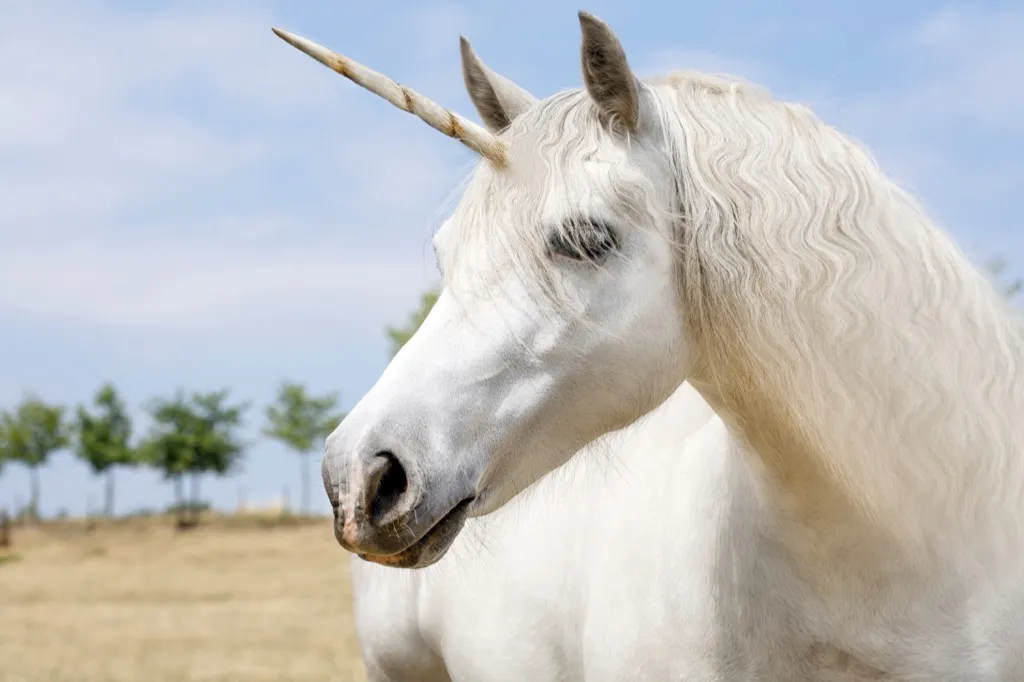
While Scotland proudly boasts the Loch Ness Monster, one of the world’s most famous fabled creatures, the country opted to make another mythical beast its national animal: the unicorn. Although this might seem like an odd choice, Visit Scotland explains that unicorns played an integral role in the country’s history. Back in the 12th century, William I used the “proud beast” in the Scottish royal coat of arms.

Bees are notorious for their stings, but humans aren’t the only ones who experience this pain in the neck (or the arm, or the leg…). In protecting their hives from outsiders, some “guard bees” will stay by the entrance and sniff the bees that come in, says Marianne Peso from the biology department of Macquarie University. If there’s a rogue bee from another hive trying to steal some nectar, the guard bee will bite and even sting the intruder.

A 2013 U.K. study from online retailer Littlewoods.com observed young children and recorded the questions they asked the adults around them. The children tended to turn to their mothers for answers, and these moms could end up answering an average of nearly 300 questions per day, or one question every two-and-a-half minutes, the study found. The moms reported that the hardest questions they were asked included “Why is water wet?” and “What are shadows made of?”
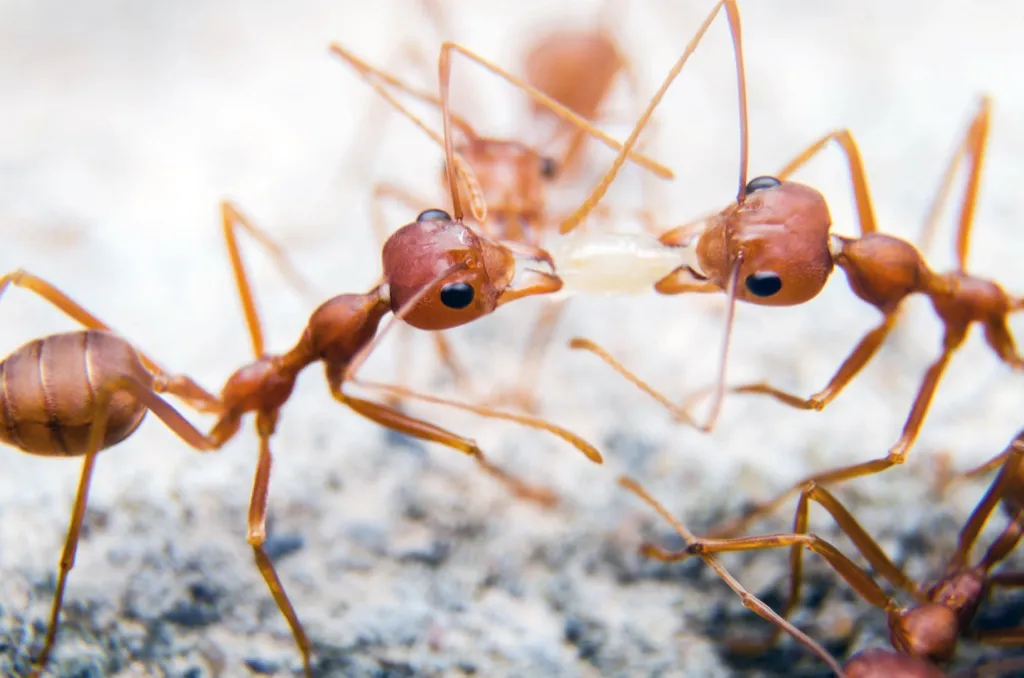
Entomologists have estimated that there are at least one million trillion insects and only one percent of that number is ants, according to the BBC. And if you took all those ants (about ten thousand trillion) and put them on one side of a giant scale, you could almost put all of the people in the world onto the other and balance things out. Unfortunately, as humans have become heavier, this probably wouldn’t hold up today—but it once did. Francis Ratnieks, professor of Apiculture at the University of Sussex, told the BBC this might have held true around 2,000 years ago.

Try writing out a few sentences—anything at all. Now take a minute to look at how frequently each letter in the alphabet appears. Chances are you’ll see a lot of the letter “e.” That’s because the commonly used vowel appears in around 11 percent of all words in the English language, according to Oxford Dictionaries. The next most popular letter was “a,” which appears in around 8.5 percent of all words. The least common letter is “q,” which appears in just 0.2 percent of words.

But were you aware of the fact that multiple skeletons were found in the basement of Benjamin Franklin‘s London home? The bones were discovered during a 1998 renovation of the house and were identified as being from nearly a dozen people, including six children. “The most plausible explanation is not mass murder, but an anatomy school run by Franklin’s young friend and protege, William Hewson,” wrote The Guardian.
That’s not to say there wasn’t any funny business going on. “The resurrection men could deliver bodies stolen from graveyards to the Thames wharf at the bottom of the street, while there was a weekly public execution at the gallows on the other side of the garden wall,” the publication reported.

A small valley near Volcán in Panama has garnered the distinction of being the world’s healthiest place to live, according to a 2018 report by International Living. Called Shangri-La Valley, the area is home to beautiful scenery, a low cost of living, and a significantly longer life expectancy than the surrounding areas. All in all, the world’s healthiest areas have some common factors, according to the ranking: a warm climate, an active social scene, healthy food, and a slower pace of life that makes for less daily stress.

The pharaohs of ancient Egypt were believed to be literally divine. The word pharaoh itself means “great house,” as in the house of God. In fact, King Pepi II, who supposedly ruled for 90 years, thought so highly of himself that when he was bothered by insects, he would command that one of his slaves be covered in honey to lure the flies away from himself.

If you were under the impression that the human body had finished evolving, think again. It turns out that some people have a bone in their knee called a fabella. And while this particular little bone with an unknown purpose was once fading away, over the last century and a half, it’s gotten more common. Back in 1875, nearly 18 percent of people examined had a fabella. That number dropped to 11 percent by 1918. However, by 2018, 39 percent of individuals had this mysterious bone.
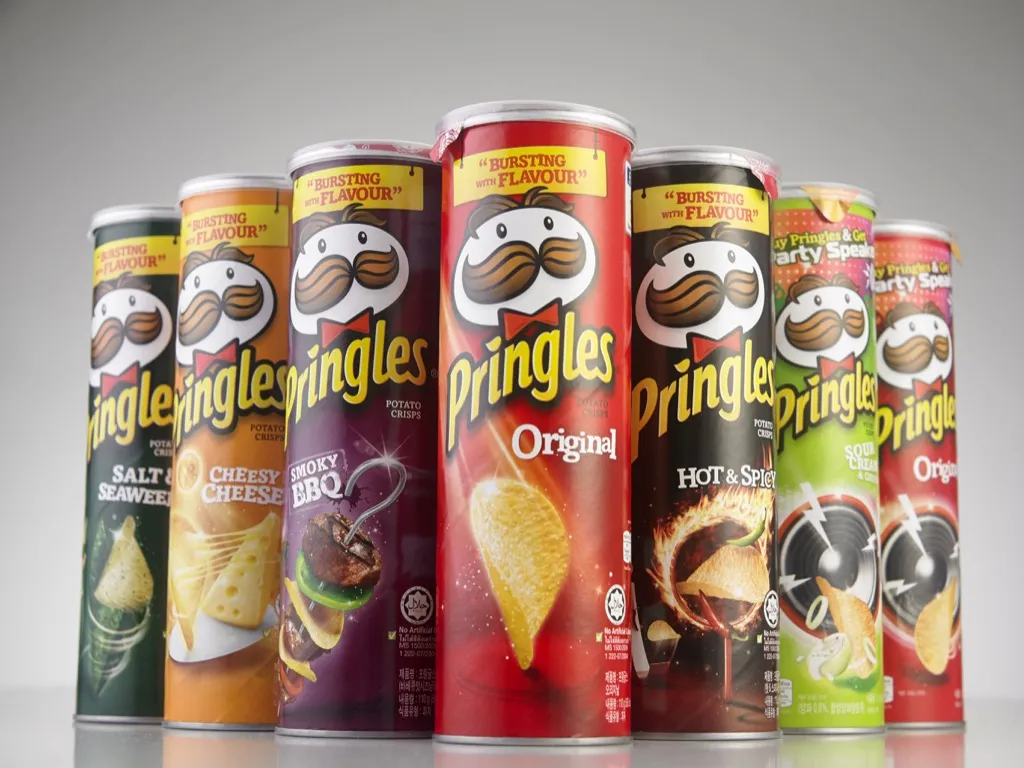
The next time you see a can of Pringles, take a closer look—you won’t see the word “chip” anywhere on the packaging. That’s because Pringles aren’t made of thinly-sliced potatoes, but instead dehydrated potato flakes pressed into their signature parabolic shape. That’s what makes them less greasy. But when other potato chip manufacturers complained, the Food and Drug Administration ruled that Pringles couldn’t be marketed as chips. The company eventually settled on “potato crisp.”
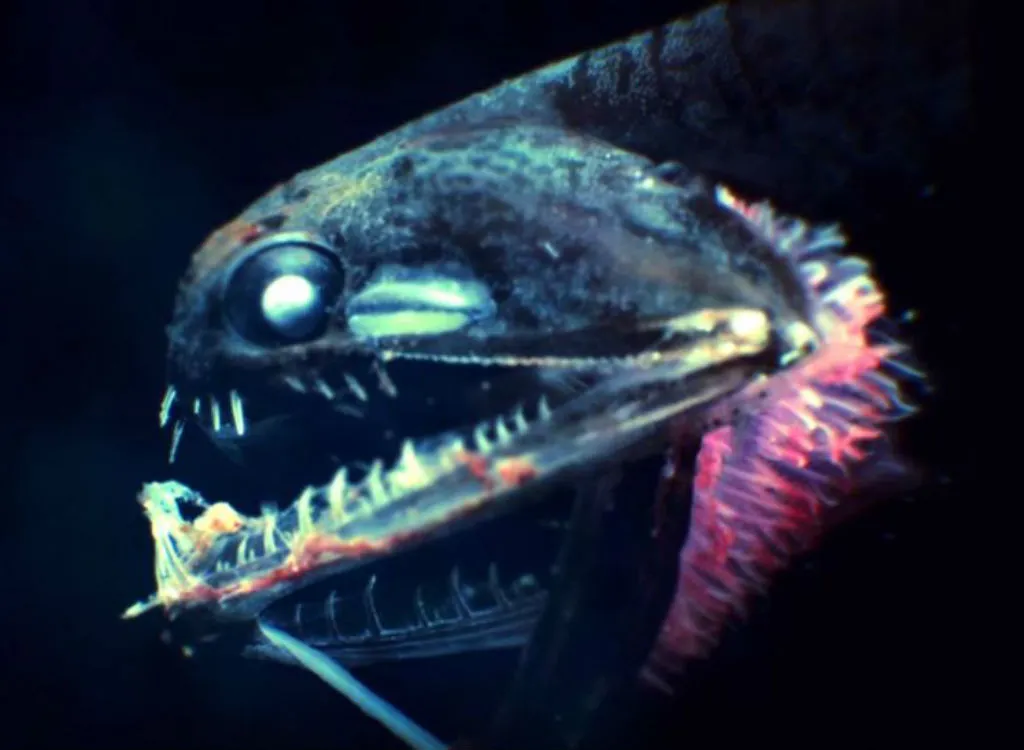
The deepest levels of our oceans are some of the least explored areas of the planet. Because of the extreme pressure, cold, and dark at these depths, only the very strangest of creatures can survive there. These include giant tube worms, vampire squids, goblin sharks, and viperfish with teeth so long that they can’t close their mouths. Perhaps the strangest, though, is the barreleye, a large fish with a completely transparent head.

While in the trenches of World War I, the U.S. First Infantry Division found themselves unable to communicate with other troops because shellfire had damaged the telephone wires. A young private came up with a unique solution: Rags, a mixed breed terrier whom the soldiers had adopted in Paris, would carry the messages from one division to the next tucked into his collar. He saved many lives, and when Rags passed away—in Maryland, at the very advanced age of 20—he was buried with military honors.

Showers aren’t just good for your hygiene—they’re good for your creativity, too. For a 2012 study published in the journal Psychological Science, researchers gave volunteers creativity problems to solve followed by a period of rest. During that period, some were assigned demanding tasks, while others did simpler tasks that allowed their minds to wander (just like a shower does). Those doing the simpler tasks during the resting time were more likely to solve the original creativity problems.

You already know that Abraham Lincoln was shot and killed by John Wilkes Booth while watching a performance at Ford’s Theatre in Washington, D.C., on April 14, 1865. But what you might not have been aware of is that the president had a bodyguard named John Frederick Parker with him on that fateful night, according to Smithsonian Magazine.
Unfortunately, Parker was a police officer with a less-than-stellar reputation. After arriving three hours late for his shift, the officer left his post protecting the president to get a drink at the Star Saloon next door to the theatre. It was during this time that Booth entered the box seats where Lincoln was sitting and shot the president.

Dolphins are known widely as adorable, intelligent animals. What is not as widely known is that these crafty creatures were used by the U.S. and Soviet Union during the Vietnam War and the Cold War. Both countries studied the creatures for their sonar capabilities, but also trained them to detect mines, bring equipment to divers, find lost equipment, and guard submarines amongst other nifty tricks.
The most popular instrument in North Korea is the accordion, so much so that all teachers used to be required to play to get their teaching certifications. Because the accordion is portable in a way that, say, a grand piano isn’t, it was thought of as the “people’s instrument” that could be taken outside and played for laborers in the fields.
If you were a baby in the middle of the 1800s and you cried while teething, your parents might have given you Mrs. Winslow’s Soothing Syrup. This “medicine” claimed that “it soothes the child, it softens the gums, [and] allays all pain.” It may have done plenty of soothing, but it was also extremely dangerous—this concoction, like many patent medicines of the time, contained morphine.
If you’ve ever enjoyed an Easter basket with plastic eggs and grass, then you can thank Donald Weder, the man who invented both. Weder not only holds the patents on these holiday staples, he also holds a total of 1,413 U.S. patents—including ones for water-based inks, flower-pot covers, and decorative wrappers. That’s compared to Thomas Edison, who held just 1,093 U.S. patents.
If you listen very closely, hot water and cold water sound slightly different when being poured. The heat changes the thickness, or viscosity, of the water, which changes the pitch of the sound it makes when it’s poured. What we feel as heat comes from the molecules of the water moving faster. Cold water is thicker and therefore makes a slightly higher-pitched sound.

Every culture in the world laughs, but surprisingly, most of our laughter isn’t necessarily a response to humor. Less than 20 percent of laughter comes after jokes, according to neuroscientist Robert Provine; the rest is a reaction to regular statements and questions like, “How have you been?” The ensuing laughter, however brief, helps form social bonds since people who laugh together grow closer.
It’s a sad fact the Golden Gate Bridge in San Francisco is a site where many suicides take place. However, one California Highway Patrol officer has done more to combat this problem than any other individual. Officer Kevin Briggs, who battles depression himself, has personally talked more than 200 people down from the proverbial ledge throughout his career. After retiring in 2013, Briggs wrote a book called Guardian of the Golden Gate and now goes on speaking tours to encourage public discussion of suicide and mental illness.

In 16th and 17th century Europe, cannibalism was actually a fairly common practice, and it was all for medical purposes. The practice seems to have started because Egyptian mummies were thought to have magical curative properties—so they were ground up and put in many remedies.
As the idea evolved, human bone, blood, and fat were all used in medical concoctions. Got a headache? Crush a skull and make it into tea! While medical cannibalism has fallen out of favor, modern medicine still sometimes uses one human body to heal another in the form of blood donations, organ transplants, and skin grafts.

Some owners of disobedient dogs may have trouble believing this, but dogs can learn to recognize a vocabulary of about 165 words. Unsurprisingly, dogs respond best to short words, as well as words with hard consonants like “t” or “r,” which may explain why they can hear “treat” from three rooms away.
If you want to try to expand your dog’s vocabulary, be consistent—for example, always call a meal “dinner” instead of breakfast, lunch, or supper. And don’t believe the myth: Old dogs can learn words just as well as young dogs.
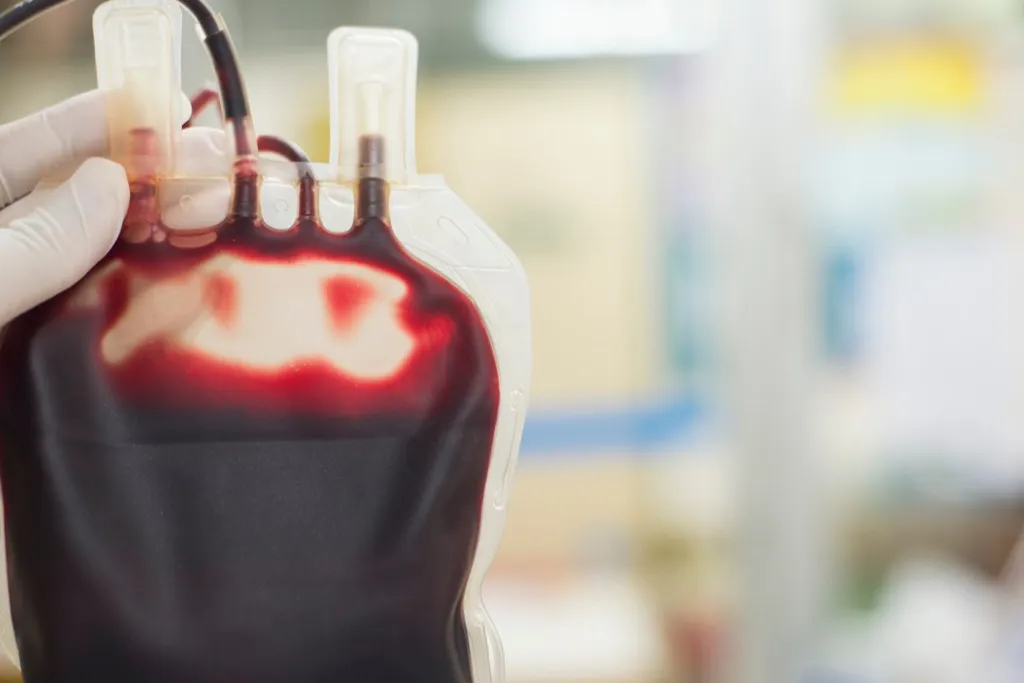
Or, at least, the components of one. Iron is an important nutrient that the human body needs. It helps your red blood cells carry oxygen, which is necessary for producing energy throughout the body. That’s why an iron deficiency can present itself with feelings of exhaustion. Amazingly, a healthy adult has about three grams of iron, enough that, if it were pulled out and melted down, it could form a nail up to three inches long.

Periodically, a rumor starts on the internet that says natural redheads will become extinct by the year 2060. Lucky for gingers everywhere, this is a myth. It’s true that the gene that causes red hair is recessive, meaning that both parents must have it for their child to have red hair. However, even non-redheads can carry the red hair gene, and it can pop up unexpectedly in generations down the line.

While there are currently no female players in Major League Baseball, there have been plenty of women in professional men’s leagues. The first was Lizzy Arlington, who pitched during the ninth inning for the Reading Coal Heavers in 1898 and won her team the game. A little over 30 years later, an African-American woman, Jackie Mitchell, pitched against the Yankees during an exhibition game, striking out both Babe Ruth and Lou Gehrig. What’s more impressive: Mitchell was 17 years old at the time.

Chimpanzees and gorillas have human-like fingerprints and so do koalas. In fact, koala prints are very similar to human fingerprints, even to expert crime scene investigators. As of yet, no koalas have framed humans for their crimes, but now we know it’s not impossible…

Human beings may dominate the planet with our sprawling cities and far-reaching technology, but we are, in fact, just one species among some 8.7 million that live together on planet Earth. One 2011 study published in the journal PLoS Biology estimated that “the various forms of life on the planet included 7.8 million species of animals, 298,000 species of plants, 611,000 species of mushrooms, mold and other fungi, 36,400 species of protozoa, and 27,500 species of algae or chromists.” And it’s worth noting that the researchers did not venture to put an estimate on the number of bacteria.

After multiple people reported they had passed a kidney stone while riding Walt Disney World’s Big Thunder Mountain Railroad ride, a research team from Michigan State University decided to investigate the phenomena in 2016. They conducted tests with a model kidney and found that there was a 64 percent kidney stone pass rate for those seated in the rear of the Thunder Mountain ride. That number was just 16 percent for those seated in the front.
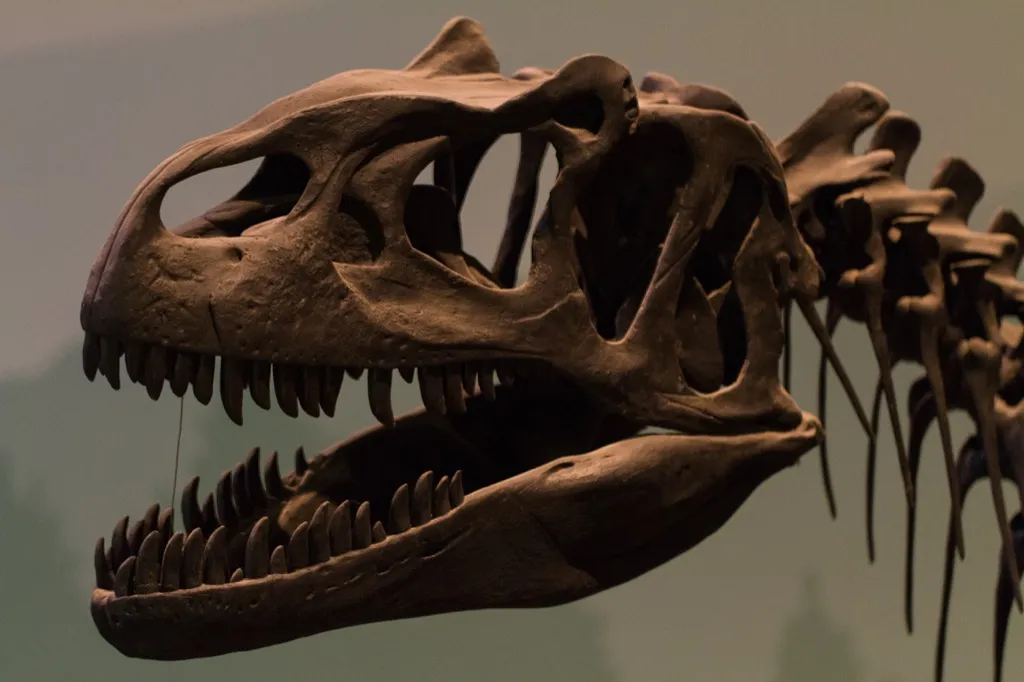
Back in their day, dinosaurs lived on every continent on Earth, including Antarctica. The reason we only find their bones in certain places, though, is that weather and soil conditions in those places were just right for the bones to be fossilized. Scientists also speculate that there may be many smaller-sized dinosaurs that we know nothing about because their bones were too small to fossilize well.

Hummingbirds are known for being itty-bitty creatures, but Bee Hummingbirds are the teeniest versions of these shockingly tiny flyers. They’re actually the smallest bird in the world. They are so minuscule that they are sometimes mistaken for insects (which explains their name), according to the National Audobon Society. The birds are just two and a quarter inches long and weigh less than a dime.
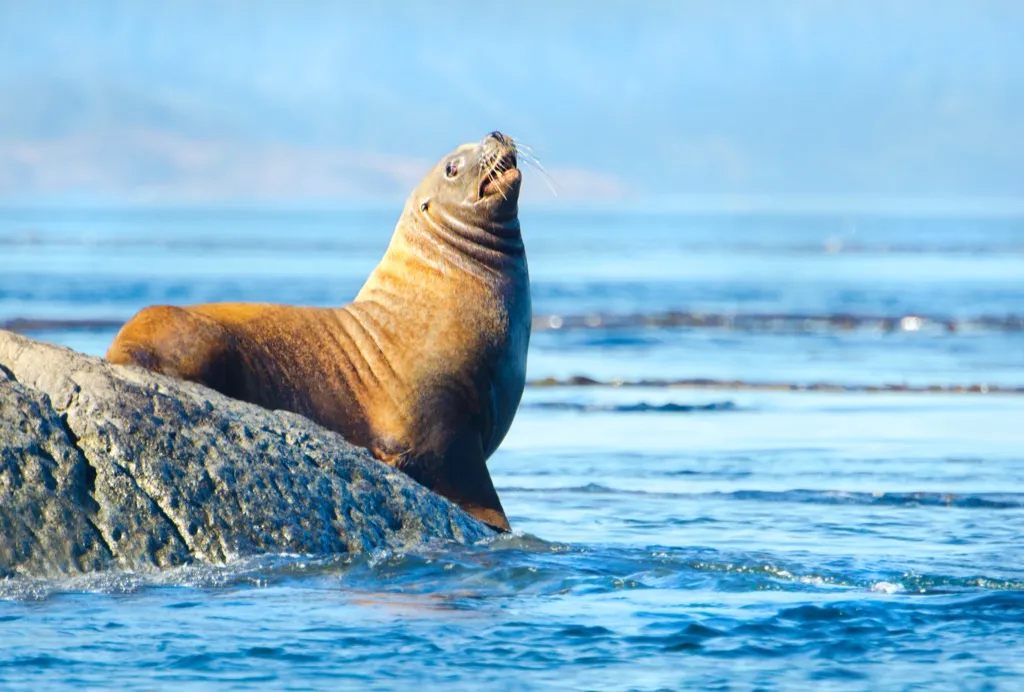
There are only two mammals on Earth with the proven ability to move their bodies in time with an external beat: humans (though not all humans, to be fair) and sea lions. When researchers at the University of Santa Cruz rescued a stranded sea lion in 2013, they found that she was very smart, and she was even able to learn how to dance. Though parrots can also keep a rhythm, it was previously thought that only animals capable of complex vocal learning could do this.

Currently, the most expensive car in the world is a Rolls-Royce Sweptail that sold for $13 million. However, even if you have that kind of dough lying around, you won’t be able to buy it—only one was made, and it was custom-built from the ground up according to the buyer’s specifications. But brand-new custom cars have nothing on used classics; the recent sale of a 1963 Ferrari GTO for $70 million is supposedly the highest price ever paid for a car.

“Typhoid Mary” was a real historical person who became notorious in the early 1900s. She was an Irish woman named Mary Mallon who immigrated to the United States in the 1880s. Though she had no symptoms of typhoid fever, she carried the bacteria in her blood and could pass it on to other people. Because no doctor could convince her that this was true and she didn’t feel sick, she insisted on working as a cook. During her career, she infected at least 51 people, three of whom died, before she was isolated in enforced quarantine for the last decades of her life.

There’s a tale written in the year 565 A.D. that speaks of an Irish monk traveling through Scotland. While there, Saint Columba heard stories of a “water beast” that attacked and killed the local people when they went in the river. Wanting to help, the monk used his friend as bait to lure the beast into sight, at which point Columba commanded it to “go no further,” and the creature stopped and swam back upstream. That river is now known in Scotland as the River Ness, which flows out from the famous Loch Ness.

A little dash of nutmeg in a pumpkin pie or on your egg nog can give it some extra flavor and a lovely, spicy scent. Too much nutmeg, however, can be toxic. Two to three teaspoons of raw nutmeg can induce hallucinations, convulsions, pain, nausea, and paranoia that can last for several days. Actual fatalities are rare, but they have happened.

You’ve heard of police dogs, but police geese? As of 2013, 12 police stations in a rural area of China have begun to use geese as sentries. They are alert animals and, as you probably know, can create a lot of noise and commotion, which creative Chinese law enforcement officers are taking advantage of. While this trend has yet to spread throughout China, Dongwan police claim that the geese have already stopped at least one theft.

The first mobile device to be called an “iPhone” was made by Cisco, not Apple. It allowed the user to use the voice functions of Skype without a computer. Apple announced its own product just 22 days later, and Cisco sued for trademark infringement. The lawsuit was ultimately settled out of court and both companies were allowed to keep using the name. However, you’ve probably never heard of the Cisco iPhone.

Benin, a country in central Africa, is notable for having the highest birth rate of twins in the world. While the world average is just 13 twins per 1,000 births, Benin more than doubles that rate, at nearly 30 twins per 1,000 births. There’s no single factor that causes this, but genetics, diet, and even the mother’s height are thought to play a role.

Most adults nowadays who know anything about graphic design steer away from using the Comic Sans font in formal documents. The font was designed by Vincent Connare, who drew direct inspiration from his favorite comic books, including Alan Moore and Dave Gibbons‘ celebrated Watchmen series.

Almost nothing is known about Sandy Island, a land mass about the size of Manhattan in the Pacific Ocean off the coast of Australia. Supposedly, explorer James Cook discovered it in 1774, and it began appearing on nautical maps in 1908. It wasn’t until 2012, when a team of Australian scientists set out to survey the island, that they discovered there was no island there at all. The scientists guessed that Cook may have in fact spotted a “pumice raft” of floating volcanic stone and gas. The Sydney Morning Herald even published an obituary for Sandy Island.

Babies, particularly newborns, are surprisingly different from the children they’ll grow up to be. When they’re born, their heads account for a quarter of their full body weight, and the size of their brains will double in the first year of life. Babies have 300 bones and around 10,000 tastebuds all over their mouth. Some of the bones will fuse as they age (into 206, as an adult), but the tastebuds not on the tongue will eventually vanish.

Since the early 13th century, the city of London has officially paid rent to the Crown for two small pieces of property. Fortunately for the city, the price has stayed the same for more than 800 years: one knife, one ax, six horseshoes, and 61 nails, presented every autumn in the Ceremony of Quit Rents. Although one of these properties is located in the Moors in Shropshire and the other is near the Royal Courts of Justice in the city itself, no one knows the exact location of the Queen’s land.

Bram Stoker was an Irish author who is now best remembered for his gothic horror novel Dracula. Partially set in Transylvania, a mountainous region in central Romania, the story cemented the legend of the vampire in mainstream European and American culture. Despite Stoker’s many world travels, he never visited Eastern Europe—and, by virtue, Transylvania—at all.

There are probably slang or informal words that get on your nerves from time to time, particularly when you think something should be taken seriously. In 2005, Australian Parliament took a few citizen complaints a little too seriously and banned anyone on their staff from using the word “mate” while at work. Fortunately, Prime Minister John Howard objected, claiming that “mate” was an important part of Australian culture, and the ban was overturned within 24 hours.

English, Portuguese, Latvian, Pashto, and Greek all sound very different today, but these languages all have a common ancestor called Proto-Indo-European. Though we don’t have any written examples of it, linguists have worked backwards from a variety of modern languages to try to reconstruct it. Using their reconstruction, the sentence “The king wanted a son” would be written as “H3rḗḱs súhxnum u̯l̥nh1to.”
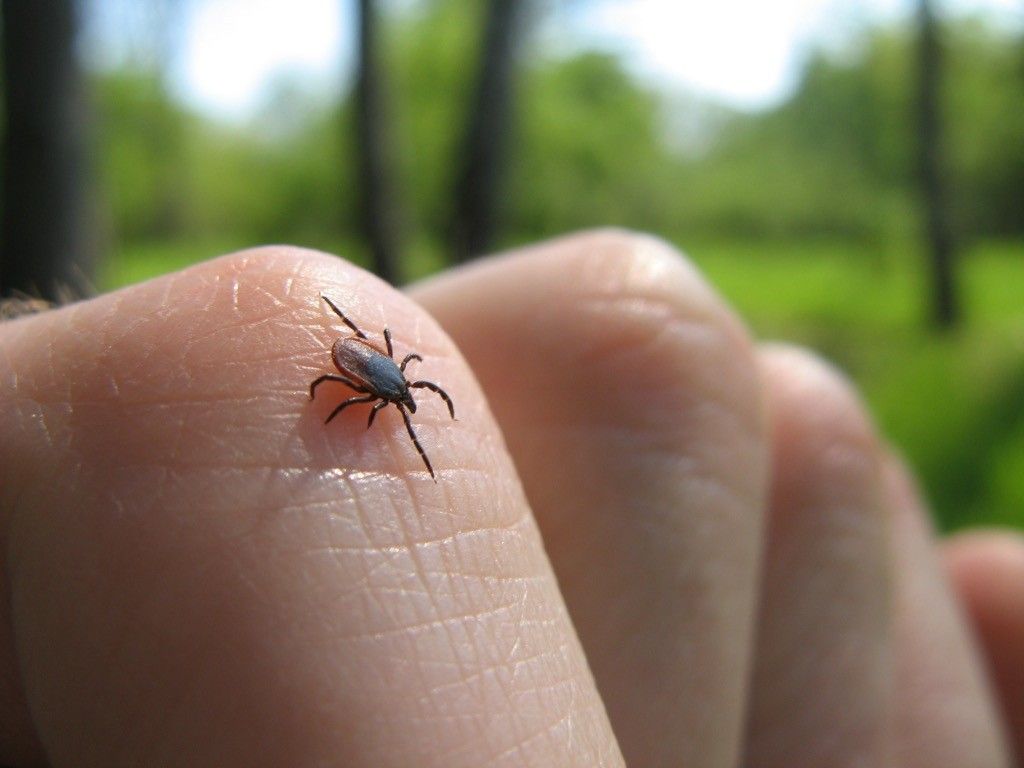
Plenty of people have food allergies, but few are the result of an insect bite. In a strange and growing trend, some people who get bitten by the Lone Star tick can develop a sudden allergy to red meat. Beef, lamb, and pork (which are technically classified as red meat) can make people with this allergy experience headaches, sneezing, a runny nose, and nausea. In severe cases, it can cause the person to be unable to breathe. For some sufferers, the allergy fades over time, but for others, it’s permanent.
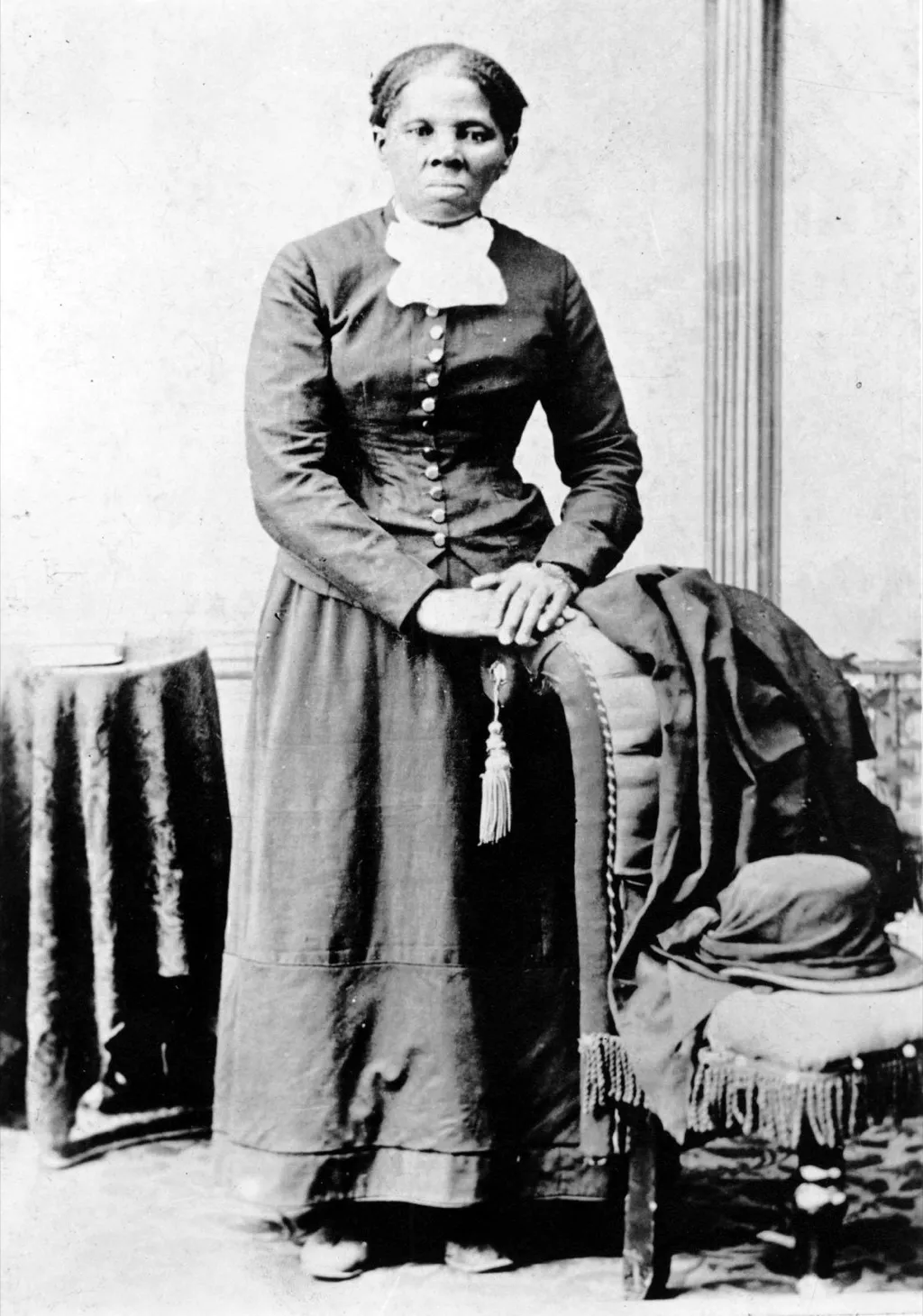
You probably know that Harriet Tubman was a former slave who became a political activist for the abolition movement. But in addition to smuggling escaped slaves through the Underground Railroad, during the Civil War she was the first woman to lead an armed assault. She planned and executed a number of raids and was known to carry a revolver for personal protection.

Tornadoes can develop over water just as well as they can over land. When they do, they’re called “waterspouts,” and they suck up large amounts of lake or sea water—as well as whatever’s swimming in that water. If the waterspout travels on to the land and the winds decrease, there’s nowhere for those fish to go but down. As far as we know, there’s no tornado powerful enough to pick up sharks, but a fish-nado is entirely possible.

Napoleon Bonaparte was once one of the most powerful men in Europe, but he suffered an ignominious defeat at the hands (or paws) of rabbits. After a military victory, Napoleon’s chief of staff organized a rabbit hunt to celebrate. Thousands of rabbits were brought in to be set loose, but instead of hopping away when the cages were opened, they turned to attack, swarming the partygoers. After trying and failing to shoo them away, the great Emperor Napoleon ran for the safety of his carriage.

Canadian actor James Doohan, best known for playing Montgomery “Scotty” Scott on the original Star Trek series, served in World War II with the 3rd Canadian Infantry Division. As a commissioned lieutenant, he led his troop up a mine-strewn Juno Beach as part of the Allied Forces’ D-Day invasion. Later in the day, he was wounded by friendly fire that caused the amputation of the middle finger on his right hand. You might not have noticed it because, during his time on Star Trek, directors did the best they could to avoid showing the injury on screen.

Apples originally come from Asia. The first pies were baked in Medieval Europe. Even the concept of putting apples in pie traces back to a recipe from England in 1381. Nevertheless, the phrase “as American as apple pie” turned up by 1924 and became a common saying during the years of the Second World War.

First written in 1838, the Constitution of the state of Florida guarantees the right to privacy, the freedom of speech, and the right of pregnant pigs to be free from cages. Unlike many crazy or outdated laws, this amendment is recent (passed in 2002) and comes from a well-meaning place: the prevention of cruelty to animals. During pregnancy, a pig must not be caged or even tethered such that it can’t turn around freely.

Japan’s record breaker for most records broken is Cherry Yoshitake, a children’s entertainer who goes by “Mr. Cherry.” In 2018 alone, Mr. Cherry set one-minute records for the most pairs of underwear pulled on (36), the most baked beans eaten (71), and the most apples bobbed (37).

You might notice that any sweat you produce right after a shower doesn’t smell so bad. That’s because your sweat itself isn’t stinky; it’s the bacteria on your skin that breaks the sweat down that causes the odor. Additionally, you’ll find that the sweat on your arms and legs doesn’t smell as much as your armpits. That’s because sweat glands in your armpits secrete more protein into a dark, damp environment—the perfect place and food for bacteria.

Saturn and Jupiter are gas giant planets that produce a truly unique form of weather. Recently, scientists discovered that there is plenty of carbon in these atmospheres. When carbon soot gets hit by lightning, it hardens into graphite and falls downward, where the pressure of the atmosphere hardens it further, until it becomes… a diamond! Storms on these planets may literally rain diamonds as big as a centimeter across.
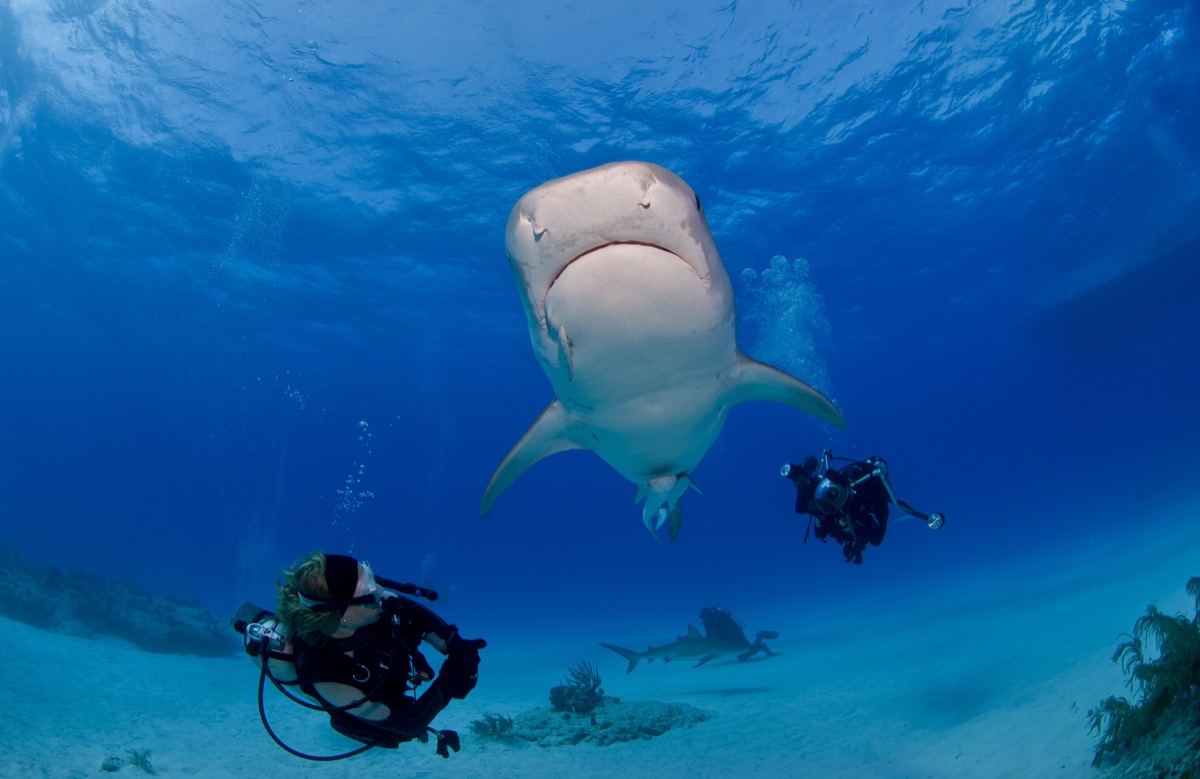
Greenland Sharks are known to be some of the oldest living animals in our world. Researchers did carbon dating on a Greenland Shark that was caught in 2014 and found it to be around 392 years old. Further testing revealed that our fishy friends could be up to 500 years old. Yes, that would mean that our geriatric friends would have been alive when Leonardo Da Vinci painted the “Mona Lisa.”

If you’ve ever been accused of “living under a rock,” you’ll feel right at home in Setenil de Las Bodegas in Spain. Many of this tiny town’s 3,000 residents live and work and play in a gorge beneath a huge rocky outcropping, where homes are built right into the rock. It provides so much shelter that historians think this area has been occupied by human settlements since the Stone Age.
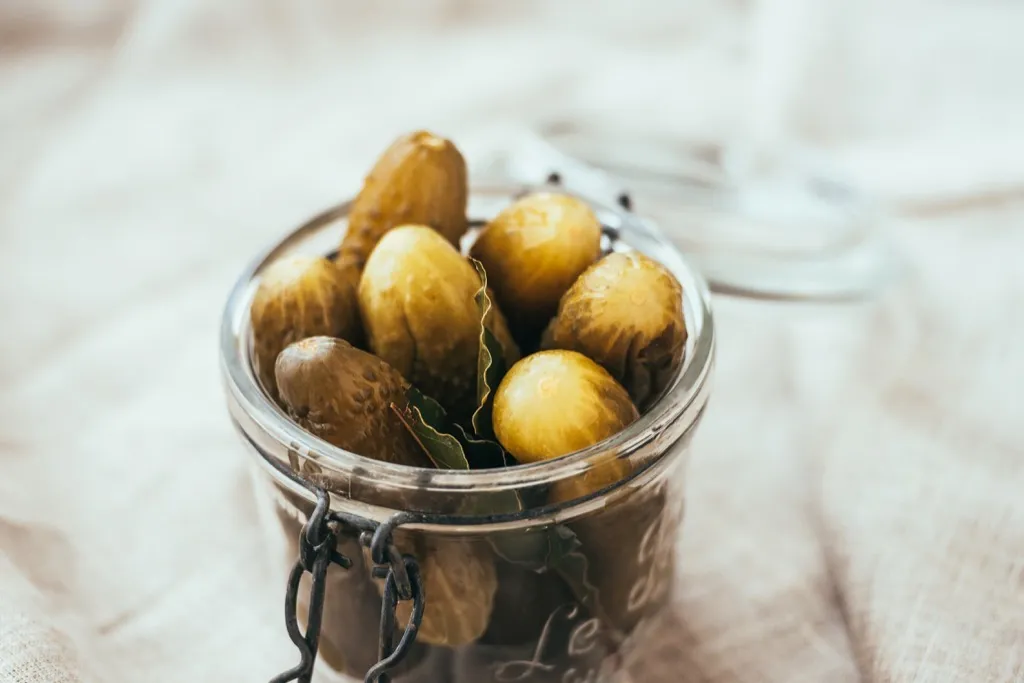
This law put Connecticut Librarians in quite the pickle. The law actually arose as a legend and the people demanded the truth. For hours, librarians in the state scanned past archives of laws within the state until one librarian eventually found the truth in the Hartford Courant. The law was in fact an ordinance that was created in 1945 to thwart pickle packers Moses Dexler and Sidney Sparer. These two men were selling inedible pickles, so laboratories conducted experiments and found that if it doesn’t bounce, don’t eat an ounce!
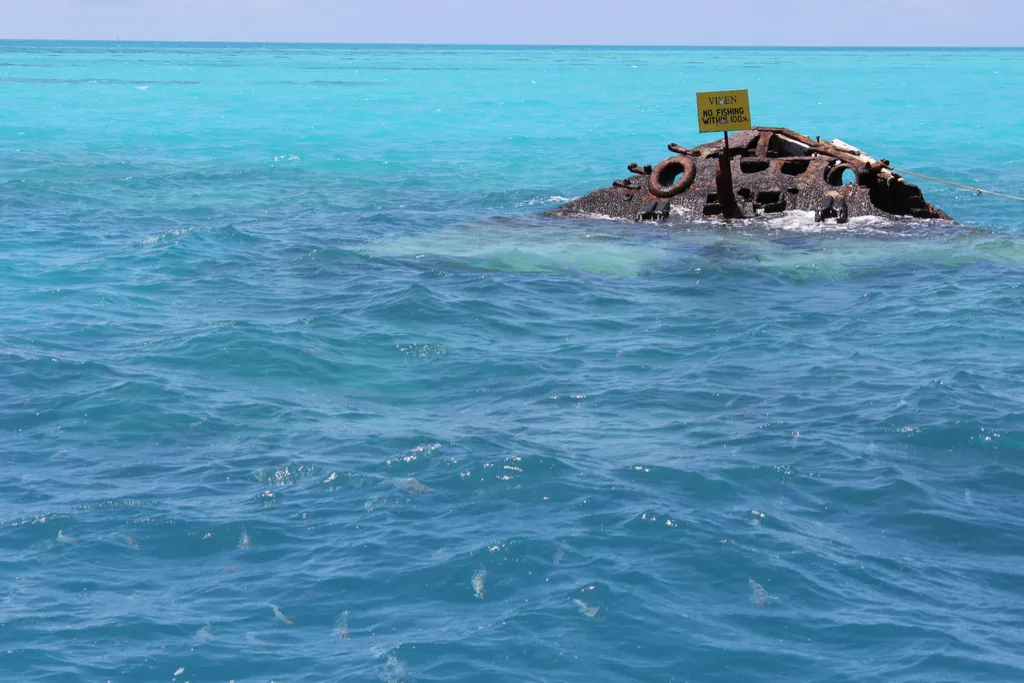
This area in the North Atlantic Sea is also called “The Devil’s Triangle” because it is an area of the ocean that stretches between the tip of Florida, Bermuda, and Puerto Rico. It has been thought to seemingly swallow up ships and aircrafts. Explorers as far back as Christopher Columbus have reported odd occurrences, like fireballs in the sky (that turned out to be a meteor crashing).
But historians, scientists, and the U.S. Coast Guard have proven that vessels are no more likely to disappear in the Bermuda Triangle than they are anywhere else in the ocean. Many prior disappearances have been demystified as remains of numerous wrecks were discovered or explained by weather patterns in the area at that time.

This is one world record you may not want to try and top. A car traveling 70 miles per hour struck Matthew McKnight, an off-duty paramedic, when he stopped to help out with an accident on the side of an interstate in 2001. He was thrown 118 feet, almost half a football field.


 Users Today : 599
Users Today : 599 Total views : 473736
Total views : 473736